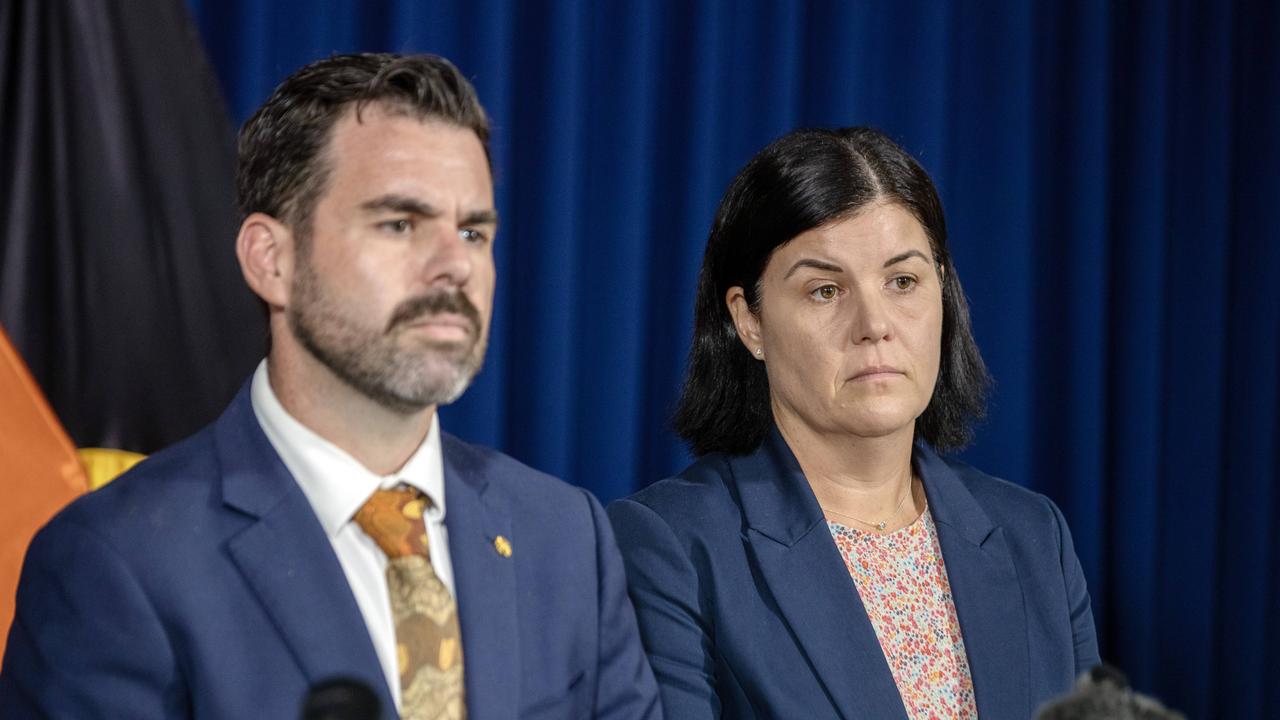NT ICAC reveals ‘glacial pace’ of investigations due to stonewalling, resourcing and fatigued whistleblower culture
The Independent Commissioner Against Corruption has revealed six requests to access NT Cabinet documents have been refused by the government, resulting in a major misconduct investigation being ditched.

Parliament has repeatedly refused to hand over Cabinet documents to the Territory’s corruption watchdog resulting in a major misconduct investigation being abandoned.
In a report tabled to parliament this week, Independent Commissioner Against Corruption Michael Riches revealed that his requests to access Cabinet documents on six occasions were blocked by the Labor government.
Mr Riches said under the legislation he did not have the power to compel the government to hand over these records of ministerial discussions, meaning he was at the mercy of the government of the day to hand over these transcripts.
He revealed that one of his investigations had to be closed due to the government’s refusal, while another investigation was saved after the requested records were leaked by an anonymous source.
While the parliament was “perfectly entitled to rely upon that statutory barrier”, Mr Riches raised his concerns that investigations into potential conflict of interest disclosure processes within Cabinet could not be addressed.
The long-running issue of managing conflicts of interest within the Territory’s small jurisdiction have most recently hit the government over allegations against former Chief Minister Natasha Fyles, and Attorney-General Chansey Paech.

Speaking generally, Mr Riches said across the public sector there remained an ongoing fear and fatigue of speaking out about malpractice or corruption by anyone involved in government, and even those with mandatory reporting obligations had clearly failed to do so.
“I am aware, from other sources, that matters of serious misconduct have been addressed by public bodies, sometimes involving the termination of employment of a public officer, without the matter having been reported to me,” he said.
“Without those reports, I cannot carry out my strategic intelligence function. Moreover, what might be considered misconduct or unsatisfactory conduct by a public officer may be assessed by my office as corrupt conduct, given our access to other information.”
It comes as the anti-corruption boss reveals other hurdles to his work, resulting in some investigations moving at a “glacial pace”.
Mr Riches said a major barrier was staffing and resourcing limits, frankly stating “my budget is not adequate”.
“I value my independence and will guard it fiercely,” he said.
“(But) there have been several instances where my desire to investigate a matter has been thwarted by the reality that I do not have the resources to do so.”
Mr Riches said his office — alongside other watchdogs like the Ombudsman and Auditor-General — were in a troubling position where they needed to fight for funding from the very same people they may be investigating.
Mr Riches said in the past 12 months he had completed four formal investigation reports, with one finding of corruption and another of unsatisfactory conduct.
However, the commissioner said he would not publish these two reports, saying one was not “in the public interest” while the corruption finding was “so unique that the likelihood of repetition was extremely low”.
Mr Riches said on six occasions ICAC investigations have revealed alleged criminal conduct, which was passed onto NT police.
However Mr Riches said since recent legislative changes failed to address the debate over evidence “obtained coercively”, he would be releasing fewer reports to the public.
He explained that while ICAC could compel people to provide evidence, he was not permitted to release that material in public statements.
“I am the only jurisdiction in the country that has the power to make findings but does not have the power to include that evidence in any public report,” he said.
Mr Riches said he believed it was “patently unfair” to identify a person engaged in corrupt conduct without providing the core evidence he relied on.
“It would, in essence, be saying, ‘I found that person X is engaged in corrupt conduct. Just trust me.’,” he said.
Mr Riches said going forward, when he made a finding of improper conduct based wholly or in part on compelled evidence, “it is unlikely that I will publish an investigation report”.
“It may be that I decide to publish a public statement, but such a statement would be of a general nature only,” he said.
Mr Riches said one of his still unpublished 15 ongoing investigations was a second ICAC report relating to the arrest of former Constable Zachary Rolfe, which would be released once the Kumanjayi Walker inquest closed.





